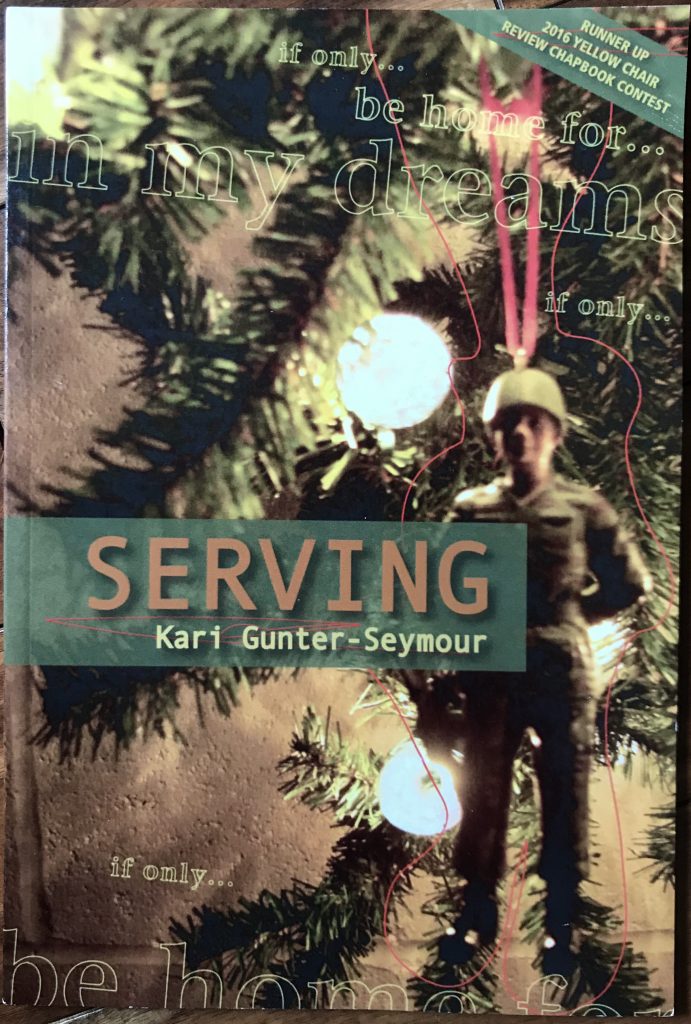
My co-editor, Kathleen Cassen Mickelson recently did a review of Kari Gunter-Seymour’s chapbook, Serving. Then she passed the book on to me for my reaction. I come at it from a different place than Kathleen did. As many of you probably don’t know, I served in the U.S. Army in the Corps of Engineers. As I read these poems, I am reminded both of the men and women who served with me, but also the children they were before the military took hold of their lives.
In this book are the buzz cut boys who grew up playing with GI Joes and a longing to be the heroes of their own stories. Brash, bold soldiers with tender hearts who are caught between caring for the civilians in harm’s way and protecting their psyche. They also protect the souls of those left at home, shielding family from the pain and horror witnessed on a daily basis.
Gunter-Seymour illustrates the heartache of those left behind. They remember what it was like before. Before the military. Before the war. Before death and dying carved a place in a child’s heart. Serving touches on the aftermath of giving up our sons and daughters to an unneeded war. The poems relay the anxiety of waiting, wondering, and the dread of knowing. My favorite poem in the book is A Middle East Vet’s Mom Attends The Parade. It eloquently sums up the quiet rage of watching people go through the motions of honoring the military, blindly, only thinking of those lost, and not those coming home, broken.
In the military I built things, cobbling together troop housing in the jungle, or a runway to land lumbering C-130s with precious supplies inside. Everyone had a job to do, just as poets have their job to do. To let us know about the things we don’t want to face, the ugly side of a war no one wanted, the injuries that live on long after the war is in the past. Remember those, Gunter-Seymour tells us, but also remember what it was like before, when the child played with wild abandon and gave us hope for the future.